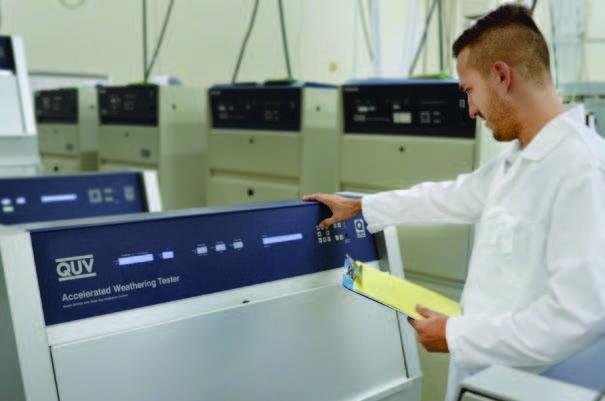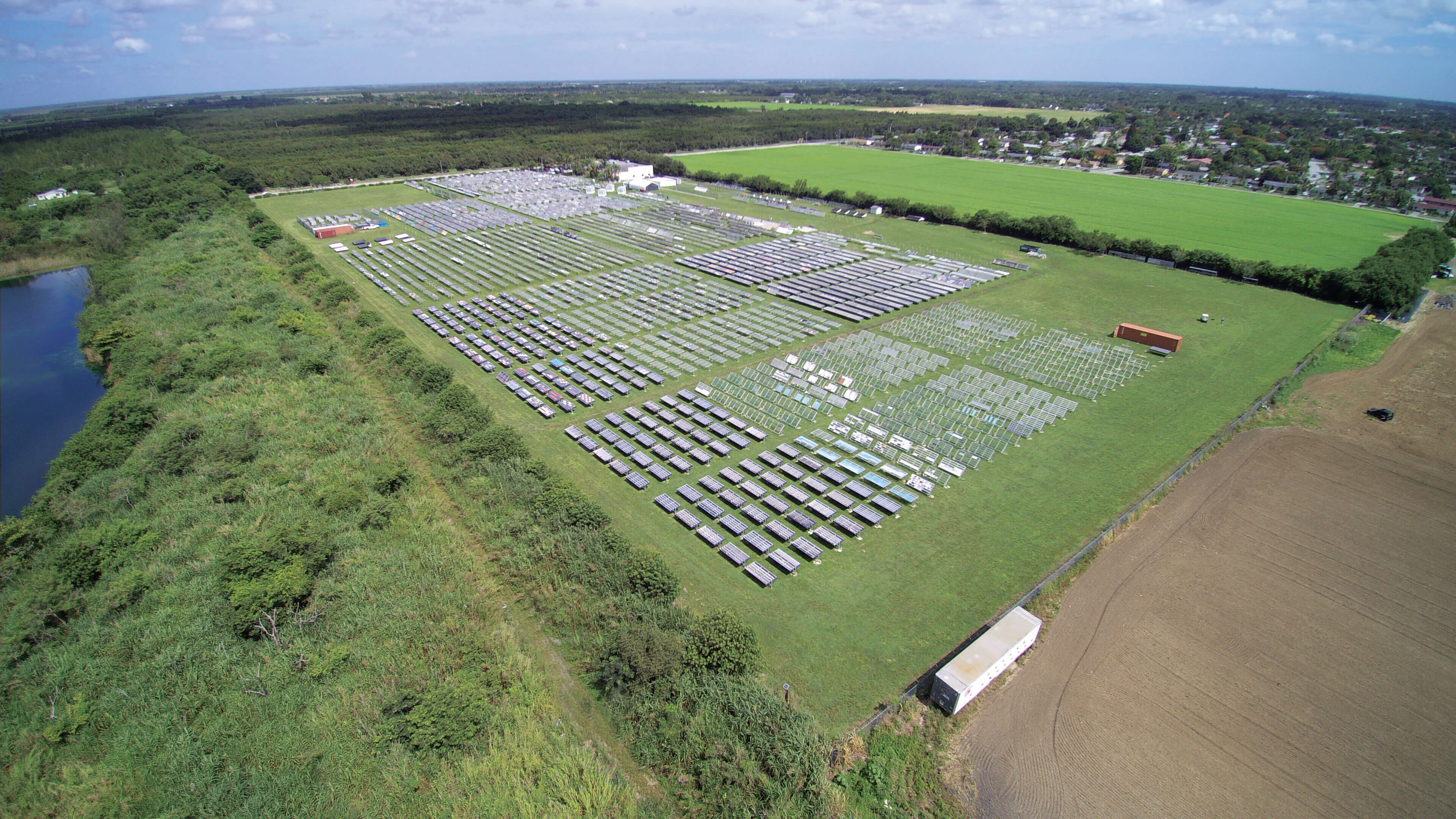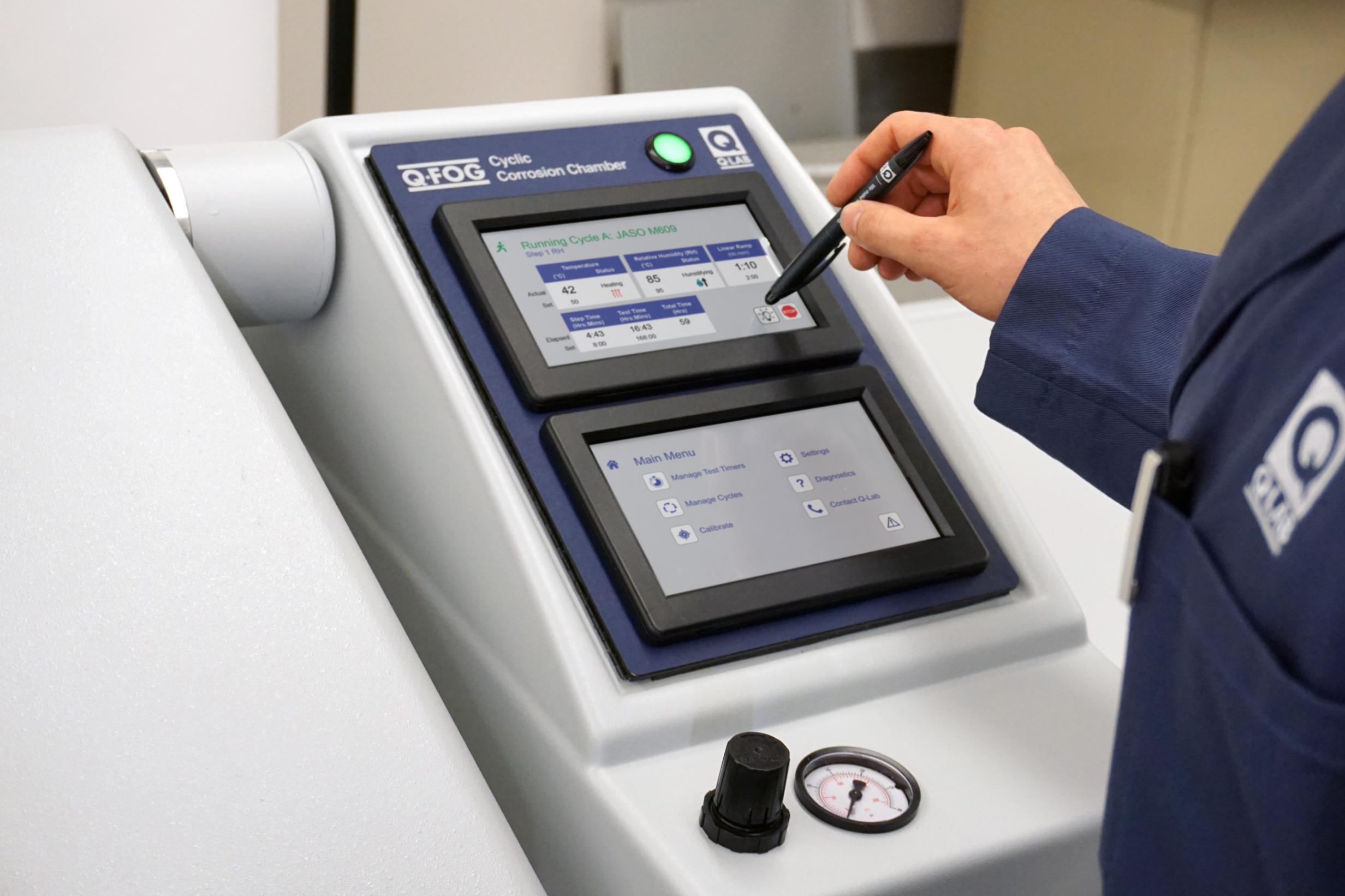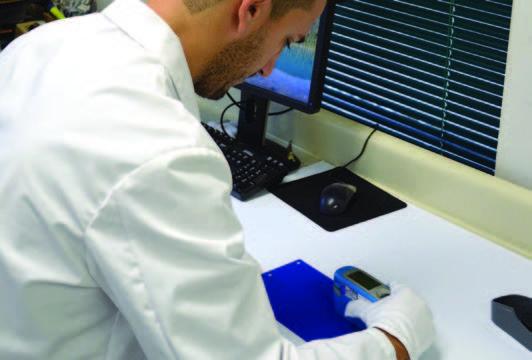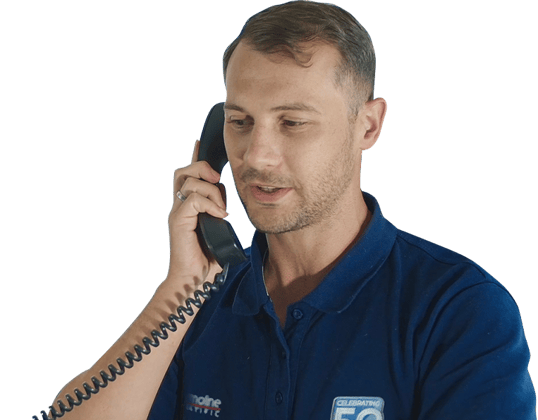Accelerated Laboratory Testing Q-Lab Test Services
Q-Lab weathering, light stability and corrosion tests are used for quality control, material certification, exterior durability studies and predictions.
Q-Lab can also act as an unbiased third party wherever third-party verification of test results is required.
Overview
Accelerated Lab Testing
For those interested in accelerated weathering, light stability, and corrosion testing butnot yet ready to purchase QUV, Q-SUN, or Q-FOG test equipment, we offer a full range of accelerated testing services in Q-Lab's fully-equipped laboratory in Florida, USA. Although outdoor exposures are an ideal way to test your products, sometimes you can't wait a year or two for real-time test results. We can give you fast and reliable weatherability, lightfastness, colourfastness, and photostability data using our extensive array of QUV, Q-SUN, Q-FOG, and QCT accelerated laboratory testers. Backed by decades of outdoor testing experience, Q-Lab experts can help you set up a successful accelerated laboratory testing program.
Outdoor Exposure Testing
Natural Outdoor Testing Location is everything. About one hundred years ago, companies in the paint and automotive industries realised that environmental conditions in South Florida and the Arizona desert were the harshest on their products. Several companies operated their own test sites in these locations, and they used what they learned to make their products durable enough to ensure generations of satisfied customers. Today, much of this testing has been consolidated at Q-Lab's sites in Florida and Arizona. Companies around the globe trust Q-Lab to perform their outdoor product testing.
Q-Lab Florida
Q-Lab Florida has more specimens on test than any other outdoor weathering facility in the world. Q-Lab Florida is located south of Miami on the southern tip of Florida, the only true subtropical region in the continental United States. We offer natural outdoor exposure testing, accelerated laboratory testing and specimen evaluation services at Q-Lab Florida. These contract test services are ISO 17025 accredited.
Why Florida? Florida is the internationally recognised benchmark location for outdoor exposure testing. Florida subtropical weathering exposures are not only realistic, but they are also accelerated. One year of Florida sunshine can equate to several years of weathering elsewhere. Our Florida site has high-intensity sunlight, high annual UV, high year-round temperatures, abundant rainfall and very high humidity. This synergistic effect of UV, moisture and heat makes Miami the ideal location for testing the durability of materials in outdoor environments. The extremely sunny, humid, and warm climate has been proven especially useful for certain types of testing, including:
- Colour change, fading, and gloss loss
- Cracking, peeling, chalking, and blistering
- Mechanical strength loss and physical deterioration
- Moisture sensitivity of products like coatings, building materials, and some plastics
- Biodegradation, including mould, mildew, fungus and algae
- Accelerated corrosion testing
Q-Lab Arizona
Q-Lab Arizona ranks among the largest desert exposure facilities in the world. Q-Lab Arizona is located 30 miles west of Phoenix in the town of Buckeye, an area away from automotive, industrial or agricultural pollution. We offer natural outdoor exposure testing, Q-TRAC natural sunlight concentrator testing, and specimen evaluation services at Q-Lab Arizona. These contract test services are ISO 17025 accredited.
Why Arizona? Arizona is an internationally recognised benchmark location for outdoor weathering exposures because of its high-intensity sunlight and high year-round temperatures. Compared with Florida, the Arizona test site offers about 20% more sunlight, higher annual temperatures, and lower humidity. During the summer, the air temperature may reach 46°C. A black-coloured specimen may reach over 71°C. This combination of high levels of UV and extremely high temperatures makes Arizona the ideal location for testing highly durable materials that may not fail elsewhere. This extreme climate has been proven especially useful for certain types of testing and materials, including:
- Mechanical strength loss and physical deterioration of plastics
- Thermal expansion effects and CTE mismatches
- Maximum service temperature studies
- Colour change, fading, and gloss loss
- Cracking, warping and heat aging of automotive components and signage
Technical Data
-
BrandQ-Lab
-
Complies WithISO 17025, A2LA
Downloads
Support & FAQs
At Thermoline, we strive to supply helpful customer support to ensure that you get the most out of our products. We are committed to providing whatever support our customers need, wherever they are in the world. If you can't find your solution in the below FAQs or Knowledge Base, please contact our friendly support team.
- Are Q-Lab Services Accredited?
Q-Lab test labs are accredited to IS017025/A2LA. Laboratory accreditation to ISO/IEC 17025 covers the same quality management system principles addressed in ISO 9001 registration.
To ensure continued compliance, accredited laboratories are regularly re-assessed to ensure that they maintain their standard of technical expertise. These laboratories must also participate in regular proficiency testing programs (where applicable) as an ongoing demonstration of their competence.
- What type of testing does Q-Lab test services offer?
Q-Lab's wide variety of testing chambers allows them to perform the most common industry standards, such as ASTM, ISO, BSI, DIN, JIS, SAE, AATCC, and more. Q-Lab's laboratories can also evaluate property changes visually, including cracking, blistering, peeling, chalking, adhesion, colour change and corrosion.
Custom testing programs are available.
- What is a Q-TRAC sunlight accumulator?
Based in Arizona, Q-TRAC natural sunlight concentrator testing gives extremely fast results like accelerated laboratory testers but instead uses actual sunlight as the light source. It is exceptionally useful for highly durable materials with very long lifetime expectations.
The Q-TRAC system uses an array of 10 mirrors to reflect and concentrate full spectrum sunlight onto the test specimens. Furthermore, the Q-TRAC system automatically tracks the sun throughout the day in both azimuth (horizontally) and elevation (vertically). The combination of mirrors and tracking maximises your test specimen's exposure.
- Where are Q-Lab's natural exposure sites?
Florida, Arizona and Ohio. The subtropical climate of the Miami area has the perfect year-round combination of abundant sunlight, warm temperatures, and plentiful water. Sunshine during the summer months in Miami is quite similar to that of northern temperate regions. However, in the winter the difference is dramatic. The key point is that it is the same sun—just more of it, and for a longer duration each year. The same holds true for temperature, rainfall, dew, and humidity. Arizona's high levels of UV and very hot temperatures make it the perfect location for testing exceptionally durable materials. The Florida site is also the largest natural exposure site in the world.
Arizona’s desert climate is characterized by intense sunlight, very high temperatures, minimal rainfall, and very low humidity. Arizona desert exposures provide a different – in some ways harsher – exposure environment than Florida subtropical tests. Compared with Florida, Arizona is much hotter and receives about 15-20% more annual total solar and UV energy. Arizona experiences large day to night temperature variations, about 17 °C (31 °F) on average. Arizona receives little annual rainfall and has low atmospheric moisture
overall. Specimens tested in the Arizona desert can be expected to have superior resistance to sunshine and elevated temperatures.Northeast Ohio has a Northern Temperate climate, meaning it experiences four true seasons during the year. Outdoor specimens are subject to a range of exposures to UV light, temperature, and water, including regular freeze/thaw cycles during the winter. Although Northeast Ohio testing will generally not attain the acceleration of natural outdoor testing in Florida or Arizona, it does deliver conditions experienced by much of the population of the United States and the rest of the world.

